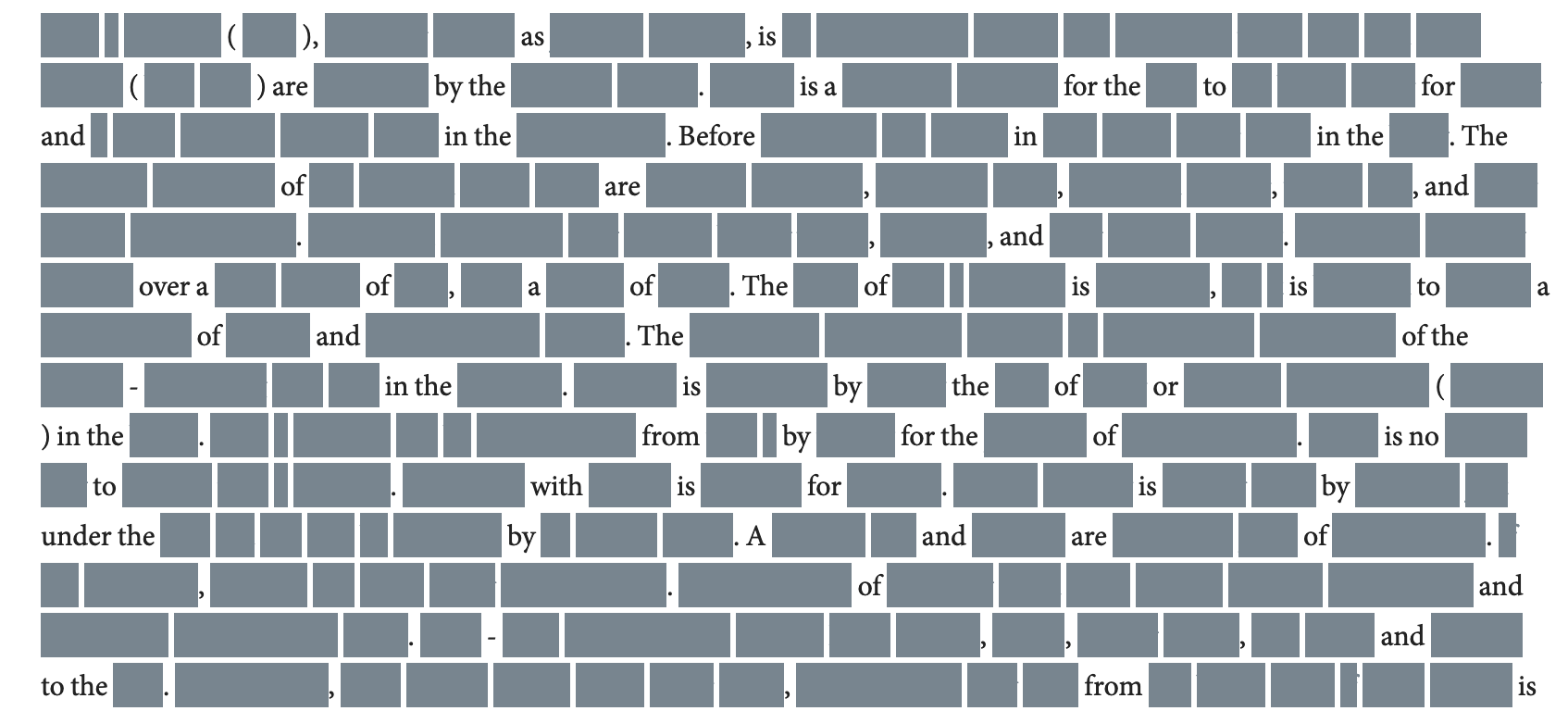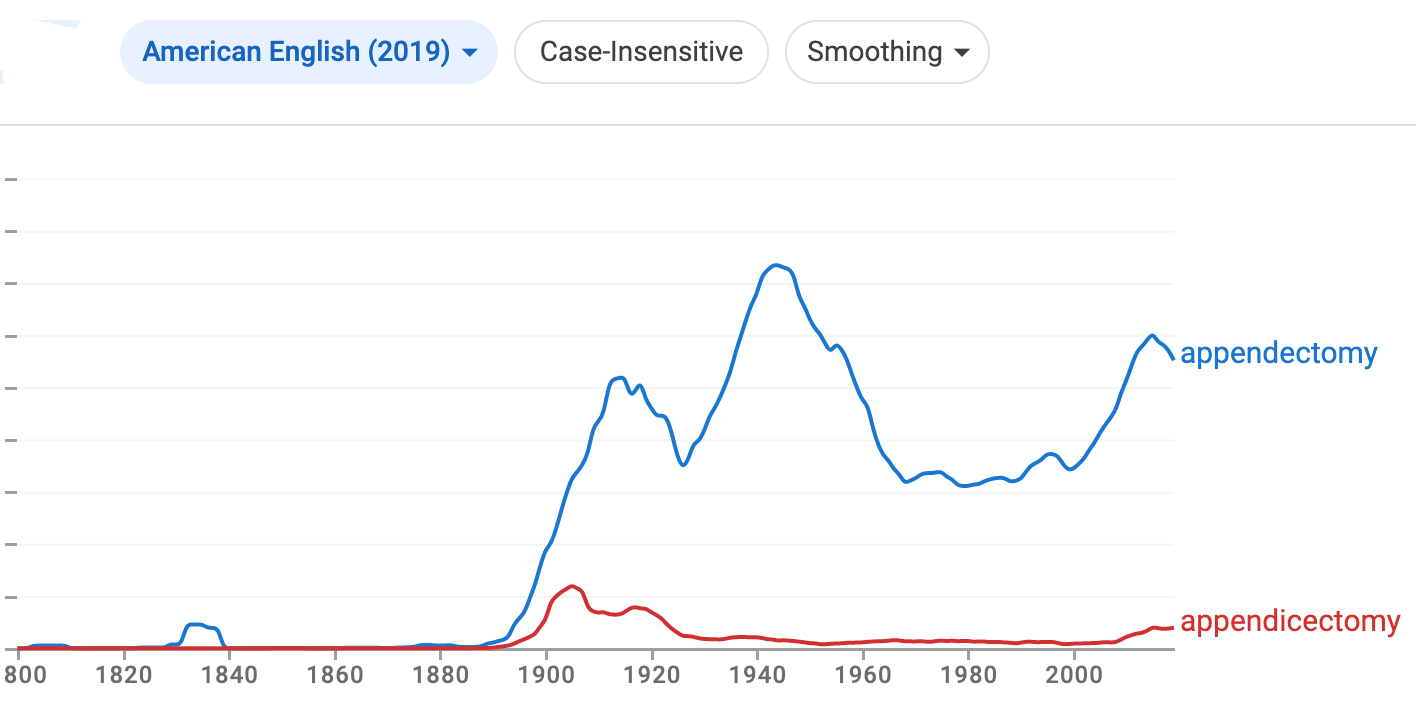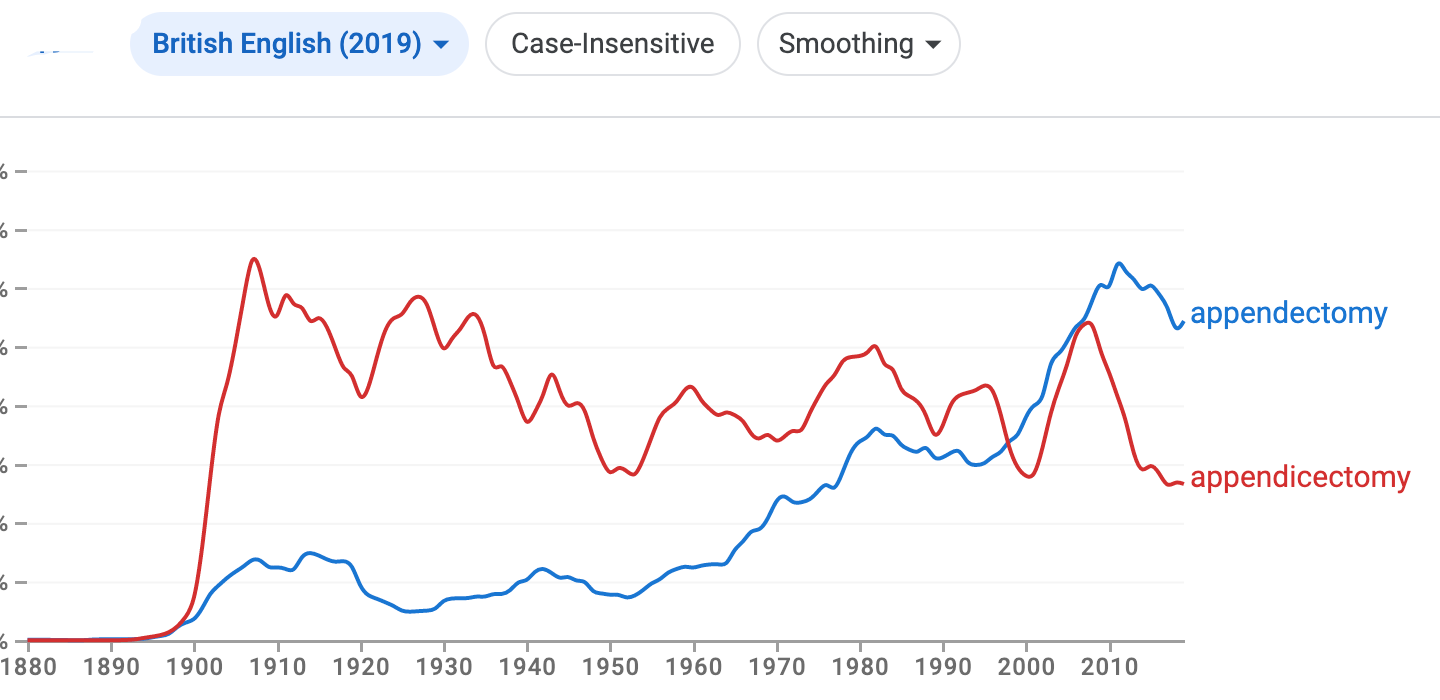"Wordectomy"
« previous post | next post »
The medical news site MedPage Today has recently added a daily game page, "Wordectomy", in which a medically-relevant Wikipedia article is presented with all letters blanked out except for punctuation and (some) function words, e.g.
The instructions:
Welcome to Wordectomy — a word game from MedPage Today where you try to determine what medical condition is being described based on the text of a Wikipedia entry.
Most of the words have been removed. It’s up to you to guess what the other words are and ultimately decipher the subject.
Here’s how:
Type a word (yes, any word!). At the start, the game is largely based on trial and error.
That word will populate throughout the article.
As you guess more words correctly, the clearer the medical condition becomes.
Use your scalpel-sharp clinical knowledge to guess the condition in as few words as possible.
Hints:
Articles and prepositions are already included.
Embrace the power of word association.
It gets easier as you go along – don’t give up right away!
Note: Wordectomy uses material from Wikipedia. Once you get the correct condition, we suggest looking at dependable medical sources to learn more.
The game is fairly easy if you
- start with some of the common function words that they blank out (today's puzzle has 25 instances of "an", 20 instances of "that", 17 instances of "this", etc.)
- then go to a list of likely medically-relevant words (today's puzzle has 42 instances of "syndrome", 23 instances of "weakness", 15 instances of "nerve", 10 instances of "muscle", etc.)
- and finally cheat by searching Wikipedia for some of the words and/or word strings that you've found.
Creating similar partly-blanked versions of texts is easy, but coding the browser-based interactive game is a bit harder — it would be fun to have versions that could be used for topics in linguistics, machine learning, psychology, philosophy, area studies, and so on. If the topic area is unknown, it would be harder, since the list of likely words would have much higher entropy.
And you could take all the fun out of it (at least from my point of view) by arranging to search the source(s) for the partly-specified character strings…
Update — As a result of checking the OED's entry for -ectomy, I learned that "appendectomy" is an Americanism (at least the OED labels it as Surgery U.S.), for which the UK equivalent is apparently "appendicectomy", a form that I don't recall ever having seen before (though the OED labels it as plain default Surgery).
Wikipedia confirms the geo-cultural difference:
An appendectomy (American English), also known as an appendicectomy (British English), is a surgical operation in which the vermiform appendix (a portion of the intestine) is removed.
A quick PubMed search turns up 17,005 hits for "appendectomy", versus 2,417 for "appendicectomy".
Update 1a — Google ngrams graph in "American English":
…and in "British English":
Update #2 — Pete in the comments points us to Redactle, "the any-subject version of this game". But that's not really what I was asking for, which was more along the lines of an open-source version that could be used by other organizations, sites, and publications.



pete said,
June 1, 2023 @ 8:58 am
The any-subject version of this already exists, and is called Redactle: https://redactle.anybrowser.org/
CCH said,
June 1, 2023 @ 10:46 am
As a Brit, I've never heard "appendicectomy" before, I've only ever heard it referred to as an appendectomy. Maybe in medical professional circles it is, but in daily speech everyone says appendectomy, including the people I know who've had the surgery!
charles antaki said,
June 1, 2023 @ 11:47 am
Apols. for off-topic, but just as a rider to what pete said, an alternative is:
https://redactle-unlimited.com
which I came across while the original redactle was off-air for some reason. This one has the useful features of:
– allowing you to see how many letters are in each blanked word, and
– revealing all the versions of a guess (tenses, plurals..)
Taylor, Philip said,
June 1, 2023 @ 1:09 pm
Reading this thread, I now realise that I have mentally mis-parsed "vasectomy" for as long as I have been aware of the word. To my mind, it was always "va-sectomy", where the "sectomy" indicated the surgical excision, but now that I have seen "appendicectomy" it becomes clear that it is the "ectomy" that indicates the surgical excision (of the vas deferens or the vermiform appendix respectively), and the seemingly leading "s" and "c" are in fact trailing elements. One lives and learns ! Prior to this revelation, I would have assumed (wrongly, as I now realise) that "appendisectomy" was the correct spelling. Yet there is a perfectly valid surgical term "resect", where the leading "s" is a part of what follows …
Terry K. said,
June 1, 2023 @ 6:52 pm
On today's I ran afoul of an accent mark on a letter that I didn't realize I needed to include.
Bruce L said,
June 2, 2023 @ 1:43 am
Redactle has been around for a while and has an active community at https://www.reddit.com/r/Redactle/
It's possible to one-shot the answer if you have good familiarity with the Wikipedia article style, have good general knowledge, and are willing to count the length of redactions. And get a bit lucky!
jin defang said,
June 2, 2023 @ 6:17 am
I'd love to see this applied to those semi-declassified documents in which phrases and sentences are blacked out—clearly implying they're the most interesting parts, and definitely piquing the already curious reader's curiousity still further.
Michael Watts said,
June 3, 2023 @ 2:18 am
"Resect" pretty clearly comes from Latin where the verb for "cut" is seco(4th principal part sectum).
Medical terms are more usually based on Greek. You could conceive of a suffix "-sectomy" being based on a combination of the Latin root sect meaning "cut" followed by the Greek root tom also meaning "cut", but that would be weird. It would also fail to explain why most such procedures end in -ectomy unpreceded by an /s/ sound of any kind; compare "hysterectomy".
Note that while it is true that the -ectomy suffix specifically indicates excision, vasectomy is misnamed and involves only severing and ligation. The female equivalent is known, less misleadingly, as "tubal ligation". The mistake in vasectomy is all the more strange because the suffix -otomy for surgeries that don't involve removing something is also very common in current medical terminology.
Karen Carlson said,
June 4, 2023 @ 7:22 am
Re appendicectomy – the (American) TV show ER, features British actor Alex Kingston playing a doctor in an American hospital – Season 4, Episode 6, aired 11/6/1997, has her using the term "appendicectomy" (28:38 on Hulu version) among Chicago surgeons, who don't react to it. (no, I don't have a 26-year-old episode memorized, I just happened to have watched it recently) and her Britishisms vs Americanisms were something that stood out). Whether this was her idea, or the writers' (credited as Michael Crichton and Samantha Corbin-Miller) is unknown.
Yerushalmi said,
June 5, 2023 @ 12:10 pm
Curiously, although Wordectomy reveals "a" and "the" by default, they've left "an" out.